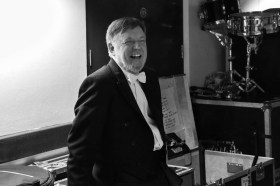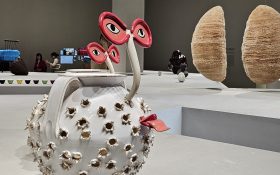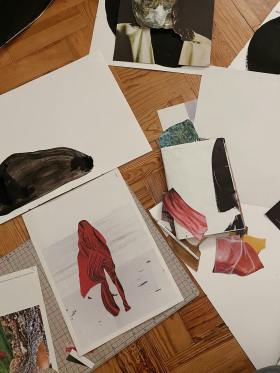The London Film Festival, for all of its attributes, is a logistical nightmare. And this year it was harder than ever for journalists to see the films before the breakfast interviews with the directors as there was a dearth of press screenings whilst the public shows had an increasingly small number of press allocations.
A case in point was the Spike Lee film, Miracle at St. Anna which was a late entry and only aired twice. Opening night was sold out, with the box-office telling standby journalists that if there were any returns they`d be sold off. The screening, timed for the next day, was not disclosed until nearer the awaited time, making it difficult if
not impossible for journalists to attend.
That said, the BFI didn`t manage to persuade Spike to attend a breakfast interview, limiting access to him to the conversation about the book of the film held at Waterstones in Piccadilly the night after the public show.
Name-dropping couldn`t corner this guy, and when I mentioned that I was a friend of producer Marvin (Malcolm X) Worth, the only reply that I got was: “After all, it’s a long way to come. I`ve been in the air for eight hours. I didn’t just hop in a taxi.” All the more reason
To stay, Spike. All the more reason.
A miracle in having been made, Miracle will undoubtedly cop a lot of BAFTAs not to mention Oscars and should have opened the festival rather than the crass Frost/Nixon. This myopia, evinced in other choices, cast a blight over this year’s festival.
Agnes Varda, who is probably the most seminal French New Wave filmmaker, attended to discuss her autobiographical reverie, The Beaches of Agnes. But the film that debuted at the NFT instead of the Odeon West End was not announced until late and then without noting that Varda was present and would be discussing it not, as is usual, with Festival Director Sandra Hebron but someone else from the committee, Helen DeWitt. De Witt was okay as an interlocutor but
the omission of Hebron tended to undercut Varda’s importance.
And as she herself told me, “I wanted Sandra to do the interview and even asked if, as she had other commitments, she could do half (and let Helen do the other half)?”
Varda did attend the breakfast sessions, but encountered even graver mishaps about which she was visible as well as vocal: she didn`t have a list of who was attending or the papers for which they wrote and, what was worse, when the journalists did show up it emerged that] several had not seen the film.
Apparently they`d been told there was limited press allocation and it didn`t occur to them to actively purchase a ticket. The press officers running the breakfast actively pushed their favourites and I almost found myself marginalised by one favourite who knew someone who knew Varda, except that he hadn`t seen the film. Out!!!!!!
Another journalist didn`t think it was important. She knew the majority of the Varda oeuvre. Out!!!!!
And then it was over. The writer from Time Out arrived,
claiming his exclusive for 45 minutes and the rest of us [left].
But not before I was collared and scolded by the press lady
for complaining verbally and at the time that the session was alarmingly manipulated with certain journalists getting the breaks.
What a mess!!!! Next segment….about the films.




